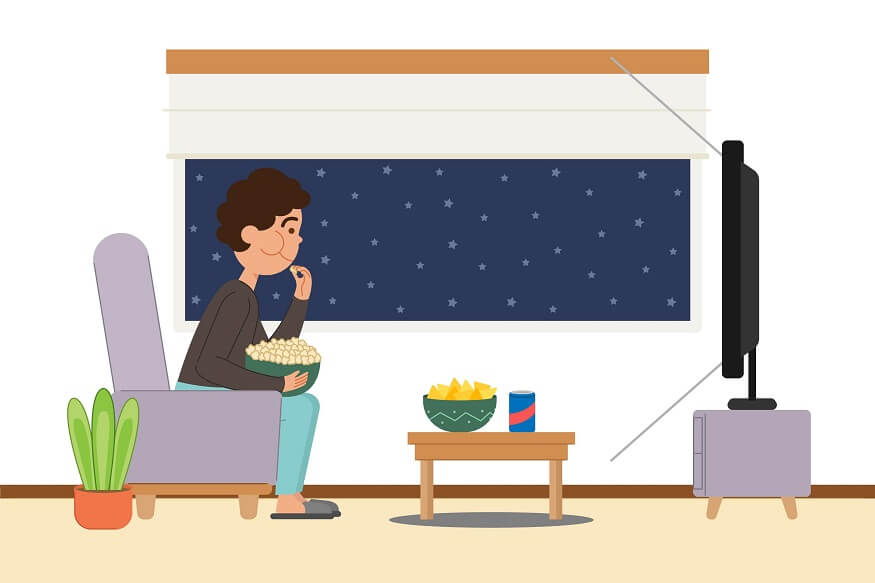With the advent of technology, the exponential rise in smartphone penetration, and the increasing popularity of social media and messaging, screen times have reached alarming levels. As per estimates, an average Indian spends more than 7 hours per day staring at a screen. These screens come in various forms such as smartphones, tablets, laptops, computers, and televisions.
Also Read: Effective Tips to Reduce Screen Time
As per estimates categorised by age,
- Average screen time for kids aged 0 to 2 years is 49 minutes per day
- Average screen time for kids aged 2 to 4 years is 2 to 2.5 hours a day
- Average screen time for kids aged 5 to 8 years is over 3 hours a day
- Average screen time for kids aged 8 to 12 years touches almost 5 hours a day
- Average screen time for teenage kids is almost 7.5 hours a day
Kids could be spending this screen time watching videos on YouTube, playing video games, watching movies or web series on OTT platforms, or social media and other social networking platforms. Experts have highlighted the damaging effect such high screen times have on kids’ physical and mental health. One of the aspects which does not get enough attention is how these excessive screen times also take a toll on the kids’ eating habits.
While staring at a screen, that too for long hours, it is natural for kids to feel hungry. There are ample reports that suggest that when hunger strikes during screen time, kids tend to resort to quick-fix junk and unhealthy munching. The intake of fruits and vegetables is minimal during screen time. Kids usually gorge on quick-energy foods and drinks such as aerated soft drinks, fast foods, and unhealthy snacks such as chips. As the kids are preoccupied with whatever they are consuming on their screens, they typically are not mindful enough of what they are consuming in terms of food. This results in unhealthy eating habits that when combined with the largely sedentary screen time lead to risks of obesity and leave them prone to other lifestyle diseases such as heart issues, diabetes, and high blood pressure.
Many times, these extended screen times are consumed during post-dinner hours. This makes them feel hungry leaving them with an urge to munch on something that may not necessarily be healthy. The exciting and engaging content being consumed also leads them to want munchies that keep them energised during a high-intensity video game or a thrilling movie time. Late hours might hinder the availability of healthy food, thus leading them to resort to whatever is available for easy and reckless munching.
Extended screen time popularly called binge watching also brings along the concept of binge eating. While being distracted in front of a screen children tend to overeat, and sometimes eat even in the absence of hunger. There is also a tendency for them to prefer high-sugar and high-fat foods during their binge screen consumption.
A significant majority of this screen time is consumed at home and while being alone. This leaves kids to consume whatever they want without much parental supervision. Easy availability of food delivery services and instant grocery delivery options have made instant gratification possible leading to unhealthy snacking while consuming long hours of screen time. Parents need to ensure that kids have access to healthy snacking items if they are up late working on their computers finishing their homework or preparing for their exams.
Also Read: 10 Harmful Effects of Using Mobile Phones on Children
Parents and children must be mindful of this linkage between extended screen time and unhealthy eating. First and foremost, overly elongated screen times must be avoided for kids. Excessive screen time can be physically and mentally damaging. Unhealthy eating adds another layer to the numerous other harms of excessive screen time. Food consumption during binge-watching must be monitored. Kids must be given healthy food items or healthy snacks to consume during movie time or video game time. They must be advised to take frequent breaks and consume food, if they need to, during those breaks. The habit of snacking while on screen must be avoided as much as possible. Our bodily signals are not designed to handle food while the other senses are overly engaged in consuming audio-visual immersive content. Consumption of healthy and non-sugary fluids, fruits and veggies must be encouraged during long screen hours. Parents and children can experiment with a lot of available healthy snacking options if in case extended screen time is unavoidable.
Parents can favour healthy snacking items such as crunchy chickpeas, dry fruit nut mixes, yoghurt, sweet potato fries, veggie-based chips, fruit snacks, cheese and crackers, toast, etc. Avoid consumption of fast-food items such as fries, burgers, chips, and sugary drinks in excess during screen time.
At EuroSchool we take all possible measures to educate our students on healthy eating habits. Our students understand the perils of extensive screen time, and how to choose healthy eating items during their limited screen times.











